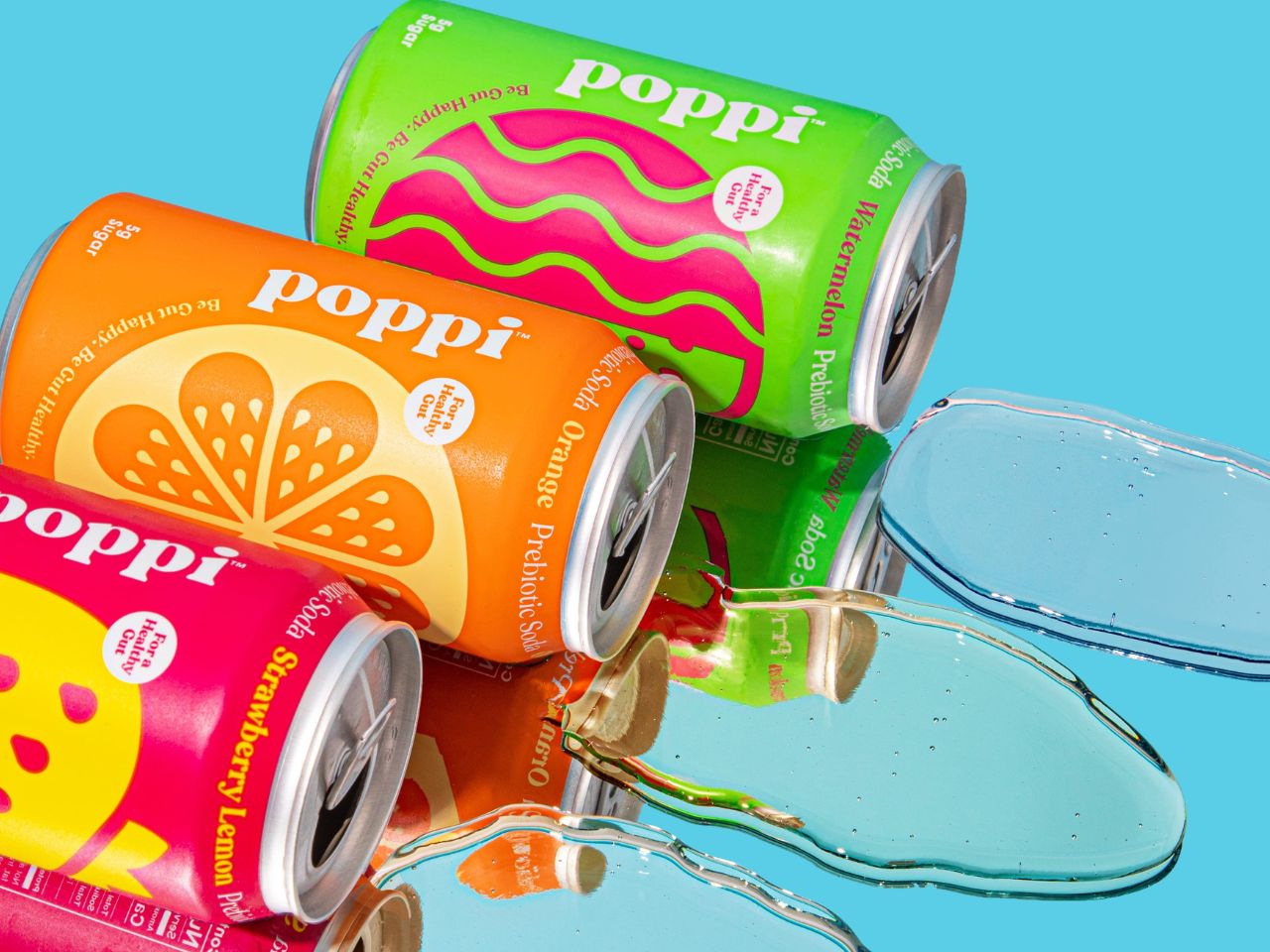The craze for healthier, tastier drinks has exploded in recent years, with brands promising everything from boosted energy to improved digestion. One such star is Poppi, a soda claiming to deliver “gut happiness” with its prebiotic punch. But this bubbly beverage is now facing a serious challenge. The Poppi prebiotic soda lawsuit has accused Poppi of overhyping its health benefits.
Critics argue that the soda’s prebiotic content is too low to make a real difference, while its sugar levels could actually counteract any potential good.
Contents
What Is the Poppi Prebiotic Soda Lawsuit?
Kristin Cobbs, a former fan of Poppi soda, is taking the popular beverage brand to court. She claims that Poppi’s marketing, which heavily promotes the drink’s “gut health” benefits, is misleading.
Cobbs and her legal team argue that while Poppi boasts slogans like “Be Gut Happy. Be Gut Healthy,” each can only offers a mere 2 grams of prebiotic fiber. They believe this amount is far too small to actually improve gut health as advertised.
The lawsuit alleges that Poppi’s marketing tactics violate California’s consumer protection laws by creating a false impression about the soda’s ability to support digestive wellness.
The Science Behind Prebiotics
To understand the root of the controversy, it’s essential to delve into the realm of prebiotics and their purported benefits. Prebiotics are a specific type of dietary fiber that serves as fuel for the beneficial bacteria residing in the human gut, fostering a thriving microbial ecosystem.
According to the lawsuit, scientific evidence suggests that adults require a minimum of 5 grams of prebiotics per day to experience tangible gut health benefits. This claim finds support from esteemed nutritional scientists, who argue that a single can of Poppi soda is unlikely to confer any meaningful prebiotic advantages.
The Prebiotic Paradox
While prebiotics hold promise for digestive well-being, their effectiveness is inextricably linked to dosage. The lawsuit alleges that consuming multiple cans of Poppi soda to reach the recommended prebiotic threshold could lead to unintended consequences, such as excessive sugar intake and potential side effects associated with high inulin consumption.
Research cited in the legal document suggests that even modest doses of inulin, the prebiotic fiber used in Poppi sodas, can trigger adverse reactions like gas buildup, abdominal discomfort, and, in extreme cases, diarrhea.
Poppi’s Defense and Industry Perspectives
Unsurprisingly, Poppi has vehemently refuted the allegations, standing firmly behind its products and dismissing the lawsuit as baseless.
However, the controversy has reignited a broader dialogue within the nutrition community about the merits and limitations of prebiotic sodas. While some experts acknowledge that these beverages may offer a healthier alternative to traditional sugary sodas, they express skepticism about their ability to significantly improve gut health.
“I don’t think we should be looking to soda or to processed foods to support our gut health,” cautions Caitlin Dow, a senior nutrition scientist at the Center for Science in the Public Interest. “Eating a diet rich in all of these other naturally occurring fibers — beans, vegetables, fruits, oats — that’s where you’re really going to get foundational support for your gut health.”
The Evolving Landscape of Prebiotic Sodas
It’s crucial for companies to be upfront about their products, and for consumers to be cautious about marketing claims. Seeking advice from healthcare professionals can also help people make informed decisions about what they consume. As the popularity of functional beverages grows, it’s essential that we all work together to create a marketplace where consumers can trust what they see on product labels.
The Road Ahead
The Poppi prebiotic soda lawsuit has sparked a wider conversation about the tricky balance between creating innovative, healthy drinks and making honest claims. As people crave healthier options, companies must carefully ensure their products truly deliver on their promises and avoid misleading consumers.
It’s important for everyone to be aware that not all “healthy” products live up to their claims. By being open, transparent, and science-focused, the industry can build trust and create products that genuinely benefit people.
Poppi Prebiotic Soda Lawsuit: FAQ
What is the main accusation against Poppi in the lawsuit?
The lawsuit claims that Poppi has misled consumers by overstating the gut health benefits of its soda. It argues that the prebiotic content in each can is insufficient to improve gut health significantly, as the company’s marketing suggests.
How much prebiotic fiber is required daily for gut health benefits?
According to the lawsuit, scientific evidence suggests that adults need a minimum of 5 grams of prebiotics per day.
What are the potential risks of consuming excessive amounts of inulin, the prebiotic in Poppi?
Research indicates that high levels of inulin consumption may lead to digestive issues such as
- Gas.
- Bloating.
- Diarrhea.




